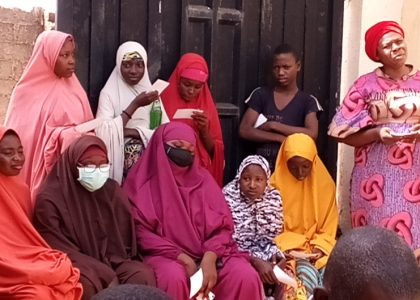Introduction:
The promise of carbon markets and various climate solutions has been a beacon of hope in the global efforts to combat climate change. Rosana Empowerment Foundation (REF) actively engages in environmental initiatives, recognizing the urgency of addressing climate challenges. However, the implementation of these solutions often falls short of expectations, highlighting the need for a critical examination of the mechanisms in place.
The Promise of Carbon Markets:
Carbon markets, envisioned as a key component of climate mitigation strategies, aim to create economic incentives for reducing greenhouse gas emissions. The concept revolves around the trading of emission credits, providing businesses with a financial motivation to adopt cleaner practices. This market-driven approach holds the promise of fostering innovation, encouraging sustainable practices, and driving the transition to a low-carbon economy.
Shortcomings in Implementation:
Despite the promise, the implementation of carbon markets and other climate solutions has faced significant challenges, leading to a gap between intent and impact.
Lack of Stringent Regulations:
In some cases, the absence of stringent regulations undermines the effectiveness of carbon markets. Weak oversight and enforcement can allow businesses to engage in token gestures rather than substantive emission reductions.

Market Volatility and Manipulation:
Carbon markets are susceptible to volatility and manipulation, diminishing their reliability as a consistent driver for emission reduction. Fluctuations in market prices and the potential for speculative behaviour can hinder long-term sustainability goals.
Social and Environmental Justice Concerns:
The implementation of climate solutions, including carbon markets, sometimes neglects social and environmental justice considerations. Certain communities may bear a disproportionate burden of the negative impacts of climate change, and poorly designed solutions can exacerbate these disparities.
Inadequate Engagement with Local Communities:
Climate solutions may fall short when they do not adequately engage with local communities. In some instances, top-down approaches neglect the knowledge and needs of those directly affected by climate change, hindering the effectiveness of implemented measures.
Technology Gaps and Affordability:
The promise of cutting-edge technologies as climate solutions often encounters barriers related to cost and accessibility. Implementation challenges arise when communities or nations lack the resources to adopt and sustain these technologies.
Insufficient Global Cooperation:
Climate change is a global challenge that demands international cooperation. However, the lack of cohesive global efforts, agreements, and commitments can impede the successful implementation of climate solutions.
REF’s Approach to Overcoming Shortcomings:
Rosana Empowerment Foundation (REF) recognizes the complexities and challenges associated with the implementation of climate solutions, including carbon markets. To address these shortcomings, REF employs a multifaceted approach:
Advocacy for Robust Regulations:
REF advocates for stringent regulations and oversight to ensure the integrity and effectiveness of carbon markets. By pushing for comprehensive and well-enforced rules, REF aims to create a more resilient and trustworthy system.

Community-Centric Solutions:
REF prioritizes community engagement and adopts community-centric approaches in its climate initiatives. This involves collaborating with local communities, understanding their unique challenges, and incorporating their perspectives into the design and implementation of climate solutions.
Promotion of Social and Environmental Justice:
Social and environmental justice are integral to REF’s climate agenda. By actively addressing equity concerns, REF seeks to create inclusive and fair climate solutions that benefit all, particularly marginalized communities.
Technological Innovation with Accessibility in Mind:
REF supports technological innovation while emphasizing the importance of affordability and accessibility. The foundation explores solutions that align with local contexts and ensures that cutting-edge technologies do not exacerbate existing inequalities.
Global Collaboration and Partnerships:
Recognizing the global nature of climate change, REF actively participates in collaborative efforts. The foundation engages with international organizations, governments, and other stakeholders to foster global cooperation and drive collective action.
Conclusion:
The promise of carbon markets and climate solutions is undeniable, but their successful implementation requires a nuanced understanding of the challenges at hand. Rosana Empowerment Foundation (REF) acknowledges these complexities and remains committed to addressing the shortcomings in climate solutions. By advocating for robust regulations, prioritizing community-centric approaches, promoting social and environmental justice, fostering technological innovation with accessibility in mind, and actively participating in global collaborations, REF strives to bridge the gap between promise and impact in the ongoing fight against climate change.






